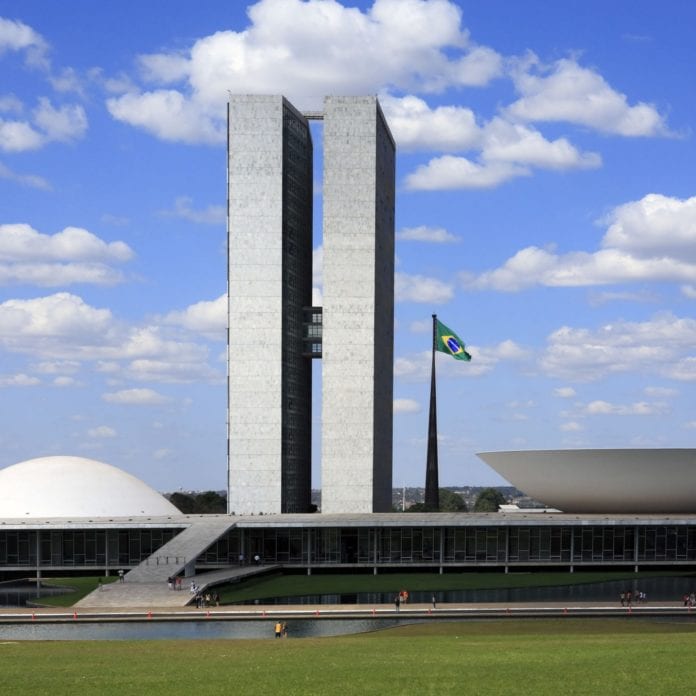Brazil’s Federal Audit Court (TCU) has officially approved the tender process through which the government will auction frequencies for 5G, the minister of communications, Fábio Faria, said on Twitter on Wednesday.
“The public notice goes to [telecommunications regulator] Anatel to be published,” Faria added in the tweet.
Last week, the TCU had examined the public notice, obtaining a majority in favor of the approval of the 5G tender. However, one of the ministers had asked to review the process.
Also last week, Faria said that the 5G spectrum auction will take place during October.
According to previous reports, the 5G auction is expected to raise about 45 billion reais ($8.3 billion). Brazil’s Ministry of Science, Technology, Innovations and Communications had approved Brazil’s 5G auction process in February 2020, with airwaves in the 700 MHz, 2.3 GHz and 3.5 GHz bands set for sale alongside 26 GHz mmWave spectrum.
The minister had previously said that he expected all state capitals in Brazil to have operational 5G standalone networks by July 2022.
Earlier this year, Anatel had confirmed that Brazilian mobile operators must not rely on dynamic spectrum sharing (DSS) technology, which allows 4G and 5G networks to operate using the same spectrum band, for the provision of 5G services in Brazil.
The rules also oblige operators to cover the vast northern Amazon region with broadband connectivity, chiefly using optic fiber cables laid in rivers, and build a separate secure network for the federal government.
The future deployment of 5G technology in Brazil could have a $1.216 trillion economic impact and an increase in productivity of $3.08 trillion, according to a previous study by Nokia and Omdia. ICT, government, manufacturing, services, agriculture, and retail will be the industries most impacted by the future deployment of 5G in Brazil, the study concluded.
Brazilian operators TIM and Claro have already launched limited 5G offerings via DSS technology.
Anatel opted not to implement any restrictions on the use of Huawei’s 5G network equipment, meaning that the Chinese company is likely to take part in the commercial deployment of 5G technology across Brazil.
However, U.S. National Security Adviser Jake Sullivan has recently urged the Brazilian authorities not to use Huawei Technologies equipment in the country’s 5G telecommunications network.
During his recent trip to Brazil, Sullivan expressed concerns to Brazilian President Jair Bolsonaro about Huawei’s potential role in Brazil’s 5G networks.
According to Chinese paper South China Morning Post, Juan Gonzalez, senior director for the western hemisphere at the U.S. National Security Council, said that the U.S. is willing to cooperate with Brazil in the future development of 5G infrastructure.
“We did agree on finding ways for us to support them [the Brazilian government] in developing potential opportunities for a Brazilian entrance into the market,” he said. “There is a huge opportunity for Brazil to break into Open RAN and develop its own domestic industry.”

